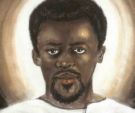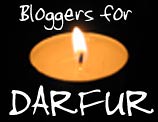
Back in the day, in my former life I was a working actor. Looking back at my life to that time so long ago, it does seem like it was a former life. I am certainly a much different person than back then.
Anywayzzz… when I was making my living as an actor in Toronto Canada, the experience was fulfilling in many ways, but it was mainly very frustrating. When it came to film and television roles, they were primarily U.S. based productions, so all the main characters were already cast with American actors. My first few years were working as an “extra” … basically in non-descript roles making up the background scenery. It was grueling work and somewhat demeaning. I remember many times when as an “extra”, I had to wait off to the side during meal breaks until the lead characters and the crew had eaten, before we were allowed to get our lunch and/or dinner (i.e. leftovers) from the meal table. After some time I was able to get an agent and I got cast in “better” roles in these productions. As a Black actor, I was primarily offered the role of “Black thug on the right”, or “Black thug on the left” … or if I was really fortunate, I got cast as “Black thug in the middle” , who got arrested by the lead “white” cop character and got to say a variation of the line: “hey man… I didn’t do nuttin!” After a number of these roles, my sense of self-respect couldn’t handle it, so I told my agent I wasn’t going to do them anymore and to try to get me auditions for roles that were not “race” specific. I think I went on 2 auditions after that before the agent dropped me.
When it came to theatre productions, things were a little better. There was certainly more “artistic-license” taken by producers and directors when it came to “non-traditional” casting. I played a variety of roles in numerous productions. I was given the opportunity to play “Benvolio” in a summer stock production of Romeo and Juliet. It was a fantastic experience and it led to an audition for the artistic director of the Stratford Festival. This festival is the premiere Shakespearean festival in Canada and it is world renown. I had known a couple of my peers… and I literally mean two Black actors, who had been cast in minor roles at the festival. However they were cast as background figures, non-speaking roles… “spear carrier on the right” or “servant on the left”. As a part of the festival’s training program, both were given the opportunity to “understudy” minor roles. From conversations with these friends about their experiences, it was obvious (to me at least) that the festival only hired Black actors (and other “actors of colour”) in an effort to appear to be inclusive, so as to ward off any criticism that they were racist or discriminatory in their casting.
So I decided that instead of doing a “standard” audition where I would recite a monologue and then stroke the artistic director’s ego and claim how it had always been my lifelong dream to work with him and be a part of the festival, no matter how small the role, and that I would be forever grateful and in his debt for the opportunity… I decided to put him on the spot and ask him why I should want to work at the festival? What was the advantage for me? What role(s) did he have in mind for me? I informed him it wouldn’t be worth it to me, to go there and play insignificant background roles. Needless to say, he wasn’t impressed. He gave me an exasperated lecture on the importance of respecting the auditioning process and “paying my dues” . He then ended the audition. Not surprisingly, I didn’t get an invite to work at Stratford… but strangely I felt a certain amount of pride for my stance.
I then made the decision to do low budget independent films and theatrical production dealing with social issues, primarily those relating to the Black and African community. I also worked with a collective of Black artists doing our own productions. However it became increasingly difficult to work on a continuous basis as there wasn’t much community support and the government funding for what was termed “non-traditional productions”, went primarily to “white” film production and theatre companies that had submitted proposals to do “ethnic-based” productions. I worked for a couple of these companies and found that they were very eurocentric in their perspectives on social issues, as well as blatantly condescending and patronizing in their ethnic-based” productions. Although I worked for approximately another year or so in the arts before I decided to do something else, my most rewarding efforts during this period were the productions I did with other “artists of colour”. I didn’t feel like I was a slave to the whims and self-promoting generosity of “white” producers and directors.










